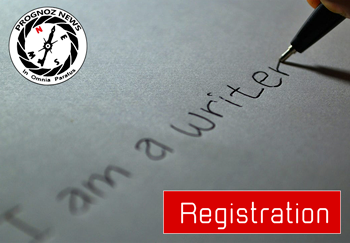𝐔𝐤𝐫𝐚𝐢𝐧𝐞 𝐟𝐚𝐜𝐞𝐬 𝐚 𝐥𝐨𝐜𝐚𝐥 𝐜𝐨𝐫𝐫𝐮𝐩𝐭𝐢𝐨𝐧 𝐫𝐞𝐟𝐨𝐫𝐦 𝐬𝐭𝐫𝐮𝐠𝐠𝐥𝐞 𝐚𝐧𝐝 𝐢𝐬 𝐫𝐚𝐜𝐢𝐧𝐠 𝐚𝐠𝐚𝐢𝐧𝐬𝐭 𝐭𝐡𝐞 𝐜𝐥𝐨𝐜𝐤 𝐢𝐧𝐭𝐞𝐫𝐧𝐚𝐭𝐢𝐨𝐧𝐚𝐥𝐥𝐲
Over the next 18 months, Ukraine is anticipated to accomplish a great deal in its fight against corruption and for institutional reform. Considering the recent arrest of Yevhen Borisov, the commander of military mobilization in Ukraine, for bribery, the focus naturally turned to the effects on the front lines. On top of that, Zelensky has fired and given the go-ahead for the police to investigate key officials, including former Cabinet members, defense ministers, and others, for possible corruption or incompetence.
After the arrests of multiple high-ranking justices on Ukraine’s Supreme Court on charges of corruption, attention turned to the judges’ nominations rather than their actual actions. These reforms are in large part a response to the legitimate demands for government transparency voiced by Ukraine’s key allies in the United States and the European Union. In fact, Zelensky is currently urging Parliament to make corruption a deadly felony during the wartime, on par with high treason.
However, corruption in Ukraine’s military procurement and logistics persists, even after high-profile dismissals. These difficulties will only be resolved with time and comprehensive investigation and court work.
Nevertheless, the country’s economy, security, and political stability are jeopardized by sectarian resistance and increased scrutiny of anti-graft initiatives. The US and Europe are imposing conditionality in the hopes that it will reduce the long-term cost of supporting Kyiv by ensuring that Ukraine continues to reform and reduce public war fatigue. The US vision for reforms in Ukraine is detailed in the Priority Reform List, which was released on September 25. The list rates the necessary changes according to urgency and how easy they are to enact and implement. Due to its advantageous political position, the Ukrainian administration will be able to implement the majority of the requested reforms. To be sure, reforms will not happen at the breakneck speed that Ukraine’s Western backers have boldly predicted. The EU and US will most likely keep supporting Kyiv in 2024 even though domestic reforms have failed. This is because the existing Western powers will have no luck convincing them to stop supporting Ukraine.
There will be Western political factions that are opposed to continuing to back Kyiv, regardless of how far the country gets on reforms in 2024. There are a number of strategic considerations and political/ideological reasons why war weariness will likely continue to rise, especially in the US. Even if they fail to depose important officials or seize control of government in 2024, political groups that argue against Western backing for Ukraine are likely to keep growing in influence. Among American voices, the claim that protecting the independence of Ukraine ranks low on the list of top strategic priorities and that the country’s money would be better spent on other pressing issues, like preventing a nuclear war between Israel and Hamas or defending Taiwan or South Korea. Reforms and anti-corruption prosecutions in Ukraine will not persuade Trump and his Republican Party supporters in the United States or Victor Orban and other extreme political groups in Hungary to abruptly reconsider their support for Kyiv. War fatigue in the West is building slowly but surely, but it has nothing to do with how quickly reforms and anti-corruption efforts are progressing in Ukraine, even though those who oppose Zelensky sometimes cite corruption as an argument.
@prognoz_news
145 Views







